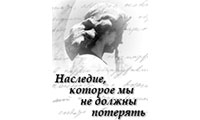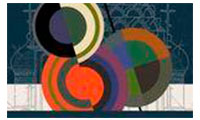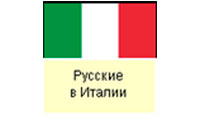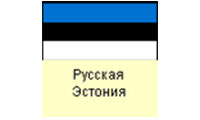Semyon Ainbinder
Semyon Ainbinder (21st of March 1914, Vitebsk, Russian Empire – 23rd of August 1984, Riga, Latvian SSR) – doctor of technical sciences, a specialist in the field of mechanics.
Semyon Aynbinder was born in the city of Vitebsk and had lived in Moscow since 1917. He completed a seven-year school program in 1929 and graduated from the department for urban land technicians at the Moscow Institute of Land Reclamation and Road Construction in 1932. While studying there, he worked as a laborer, foreman, and land survey technician. After graduation, from 1933 to 1935, he had been working as a research assistant at the Institute of Physics at Moscow State University.
In 1935, he enrolled at the Moscow Power Engineering Institute, but after his second year, in 1936, he transferred to the Zhukovsky Air Force Engineering Academy to study at the faculty of aviation armament. After graduating in 1940, he remained at the academy as a post-graduate researcher and lecturer in the Department of Ballistics. He defended his candidate's dissertation in 1944.
In 1947, Aynbinder was assigned to teach in Riga, Latvia. After his demobilization in 1950, he began working at the Institute of Energy and Electrical Engineering of the Latvian SSR Academy of Sciences as a senior research fellow and later became head of a laboratory. In 1954, he was appointed head of the Laboratory of Metal Physics at the Institute of Physics of the Latvian SSR Academy of Sciences, where he led research in cold welding of metals.
In 1956, Aynbinder became director of the Laboratory of Mechanical Engineering at the Department of Technical Sciences of the Latvian SSR Academy of Sciences. In 1958, this laboratory was reorganized into the Institute of Mechanical Engineering (renamed the Institute of Automation and Mechanics in 1961), where he remained director and head of the Laboratory of Machine Friction.
In May 1963, the Latvian SSR Academy of Sciences founded the Institute of Polymer Mechanics—the first of its kind in the USSR. It was formed by merging several academic laboratories from the Institute of Construction and Architecture, the Institute of Automation and Mechanics, and a special laboratory on plasticity from Riga Polytechnic Institute. That same year, Aynbinder joined the new institute as the head of the Laboratory of Polymer Friction and Wear, a position he held until his death in 1984.
He defended his doctoral dissertation, titled “Research into Friction and Adhesion of Solid Bodies,” in 1966 at the Joint Academic Council of the Department of Physical and Technical Sciences of the Latvian SSR Academy of Sciences. In 1968, he was awarded the title of professor.
S. Aynbinder was a recognized expert in the field of adhesion theory, metal welding, friction and wear of various materials. He authored over 150 scientific publications, including six monographs. Many of these works, such as “Cold Welding of Metals” (1957) and “New Methods of Pressure Welding” (1960), remain relevant to this day.
Semyon Aynbinder passed away in Riga on August 23, 1984, and was buried at the 1st Forest Cemetery.
Family of S. Aynbinder:
Wife – Natalia Etingof.
Two daughters – Marina (April 25, 1940, Moscow – April 21, 2023, Jerusalem) and Elena (April 10, 1947, Riga – February 22, 2000, Vienna).
Natalia Etingof (1913, St. Petersburg – 2012, Jerusalem) was a theater professional and director.
She was born in Saint-Petersburg in 1913 into the family of Boris Etingof (1887, Vilno – 1958, Moscow), a revolutionary, a Soviet statesman, an educator, and a professor, and Amalia, a philologist and archivist who worked at the Historical Museum in Moscow during the 1930s. Natalia spent her childhood and youth in Tiflis (now Tbilisi). From 1929, she lived in Moscow and was among the first graduates of the directing program at the State Institute of Theater Arts (GITIS).
She worked as an assistant director at the Maly Theater, later in Arkhangelsk, and became artistic director of Youth Theaters in Yaroslavl and Kostroma (1938–1940). During the Stalinist repressions, her father was expelled from the Party, Natalia was expelled from the Komsomol, and the family lived in poverty. During World War II, she evacuated to Sverdlovsk with her husband S. Aynbinder (then a junior lecturer) and their infant daughter Masha, alongside other families from the Zhukovsky Academy.
After returning to Moscow post-war, Natalia entered the GITIS graduate program and began teaching directing there. During the anti-cosmopolitanism campaign, she once again faced repression, lost her job, and in 1948 moved with her family to Riga. There, she worked as a director at the Riga Youth Theater (1950–1952), where she staged several productions in the Russian troupe: “Wonderland” by Y. Printsev and Y. Khochinsky, “The Two Gentlemen of Verona” by Shakespeare, “Her Friends” by V. Rozov (1950), and “Star of Peace” by Ts. Solodar (1951). She also led youth theater studios in Riga.
In 1993, Etingof emigrated from Latvia and settled in Jerusalem with her daughter, Masha Aynbinder.
As early as 1981, Natalia began writing memoirs in the form of short stories. Her “Tales of the Ancestors” were published in the Tel Aviv magazine Zerkalo, and her book “Portraits in Dry Brush” tells the stories of people who suffered under Stalinist repression. Her 2010 book “Theater Stories: A Director’s Notes” (published by I.V. Balabanov, 248 pp.) includes essays about her student days at GITIS in 1930s, internship experiences in Grozny and Arkhangelsk, and more. In her Moscow years, she was acquainted with many prominent artists and even met Mikhail Bulgakov. She died in Jerusalem on February 20, 2012.
Eldest daughter Masha (Marina) Aynbinder was born in Moscow on April 25, 1940. From 1948 she lived in Riga, where she studied at the Kalinin Moscow School of Arts and Crafts. She worked as an illustrator at the Riga Porcelain Factory (formerly Kuznetsov’s). She graduated from the painting department of the Latvian Academy of Arts in 1969 and worked on theater set design. In 1992, she moved to Israel and lived in Jerusalem. She received the Gelberg Prize (1998) and the Ish-Shalom Prize (2002). Her works are in the Riga Art Museum, the Latvian Art Fund, and private collections in Israel, Russia, France, the U.S., and other countries.
Eryka Tjunina
Sources of information:
Мемуары Н.Б. Этингоф: «Портреты сухой кистью» ;
Эвакуация (проект) Воспоминания Н.Б. Этингоф и М.С. Айнбиндер:
«Ничего страшнее этого я не видела»










